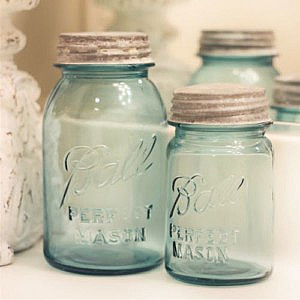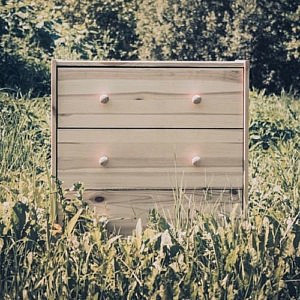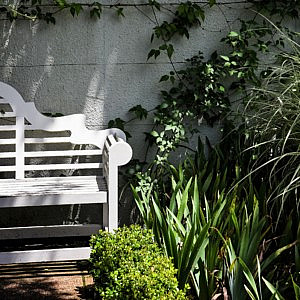Upcycling: Design that won't cost the earth
In the final post for Spring Clearing Week, APDO member Linda Cavallini of Tidy Me spoke to interior designer and sustainable living expert Lynne Lambourne about creative ways to reuse and upcycle our clutter.Design that won't cost the earth
There are so many ways we can make our clutter count, from donating unwanted goods to charity and friends, to selling them on via trusted eBay sellers, the list is truly endless! Smaller items always seem to find a quick way out of the house but larger items like furniture often become more of a burden. You may want to get rid of them as you don't like them any longer because your taste has changed but, think again. Could you repurpose the piece elsewhere in the house by changing the look of it? Have you ever thought about UPCYCLING? As a keen promoter of sustainability, I had the pleasure of meeting Lynne Lambourne, a Henley-based interior designer, uber-passionate sustainability advocate and waste warrior, and winner of the Interior Room Designer of the Year 2019, at a webinar she hosted on sustainability. She is passionate about "inspiring people to live more sustainably in a home that looks fantastic, doesn't cost the earth (literally) and that you truly love". With a wealth of knowledge about upcycling I have asked her how upcycling can contribute to making clutter count.
Warriors on waste
Lynne is on a mission to educate people and provide them with the tools, knowledge, expertise and passion they need to become upcylers and warriors on waste. She inspires people to think differently and to question the need to buy new, thus helping to reduce the use of landfill and help preserve the Earth's natural resources. Her Warrior on Waste movement is going from strength to strength. Lynne firmly believes that "making a stylish home does not mean rushing out and buying new". In her words, "A home should be where you have the things you love, the original one-off pieces that you find that make you happy every time you look at them, the things customised to your style". I could not agree more. Every year so much furniture in the UK and elsewhere is thrown away and ends up in landfill, so there is no better time to stop and think about educating ourselves on the importance of contributing to a circular economy by bringing sustainability to interior designs in our homes. How can we achieve that?
The answer is simple: upcycling, recycling, shopping second-hand, and using sustainable materials whenever we can.
Updating and reinventing unwanted material into useful repurposed products, or transforming a piece of furniture into something unique and different, turning 'trash into treasure' by making good use of what we can already find around the house is what upcycling is all about.
Here in the UK, charities such as The British Heart Foundation are leading the way towards a more sustainable circular economy. Their free collection of unwanted goods (which will hopefully resume once COVID-19 restrictions are eased) makes it super-easy to get rid of things and get them back into the system - ready to be bought and used again and again by someone else, the result being no landfill and no waste.
The great news is upcycling won't cost you the earth.
How can we achieve that?
The answer is simple: upcycling, recycling, shopping second-hand, and using sustainable materials whenever we can.
Updating and reinventing unwanted material into useful repurposed products, or transforming a piece of furniture into something unique and different, turning 'trash into treasure' by making good use of what we can already find around the house is what upcycling is all about.
Here in the UK, charities such as The British Heart Foundation are leading the way towards a more sustainable circular economy. Their free collection of unwanted goods (which will hopefully resume once COVID-19 restrictions are eased) makes it super-easy to get rid of things and get them back into the system - ready to be bought and used again and again by someone else, the result being no landfill and no waste.
The great news is upcycling won't cost you the earth.
Lynne's tips
Lynne has shared some fabulous tips with us :- Be sympathetic to the piece
- Use chalk paint - she is a fan of Annie Sloan
- Use techniques such as re-waxing, liming, decoupage
- Be creative when repurposing things, so example turn ladders into shelves and crates into bookcases
- Her best advice: don't be scared to try! You didn't love it as it was, so you have nothing to lose!

Acts of care
Lynne puts the word CARE at the heart of everything she does. For her that also means "extending the love you have for your home and family to the planet through the choices you make". Making sure that what we put in our homes does not have a detrimental effect on future generations is the first act of care. Small changes can make a massive difference. We are human, we are not perfect, and that is OK. However, we can acknowledge that there are ways in which we can make our lives more sustainable for the planet, for our children, and for generations to come. Professional organisers can help you see your possessions in a different light and suggest ways to reuse and repurpose items, encouraging you to think before you buy. From food to toys and everything in between, reassessing our needs as consumers and becoming more intentional buyers rather than impulsive ones is a big step forward. I could not agree with Lynne and her ethos more. I strive to help my clients realise that looking at a simpler way of living will not only free up their minds and their space but is, in fact, the biggest gift for our planet.For more advice and tips on what to do with your decluttered items, take a look at "Making clutter count: Decluttering during the pandemic" and "10 ways to donate your decluttered items that you may not have thought of!" where our APDO experts have been sharing their suggestions for Spring Clearing Week 2021.
